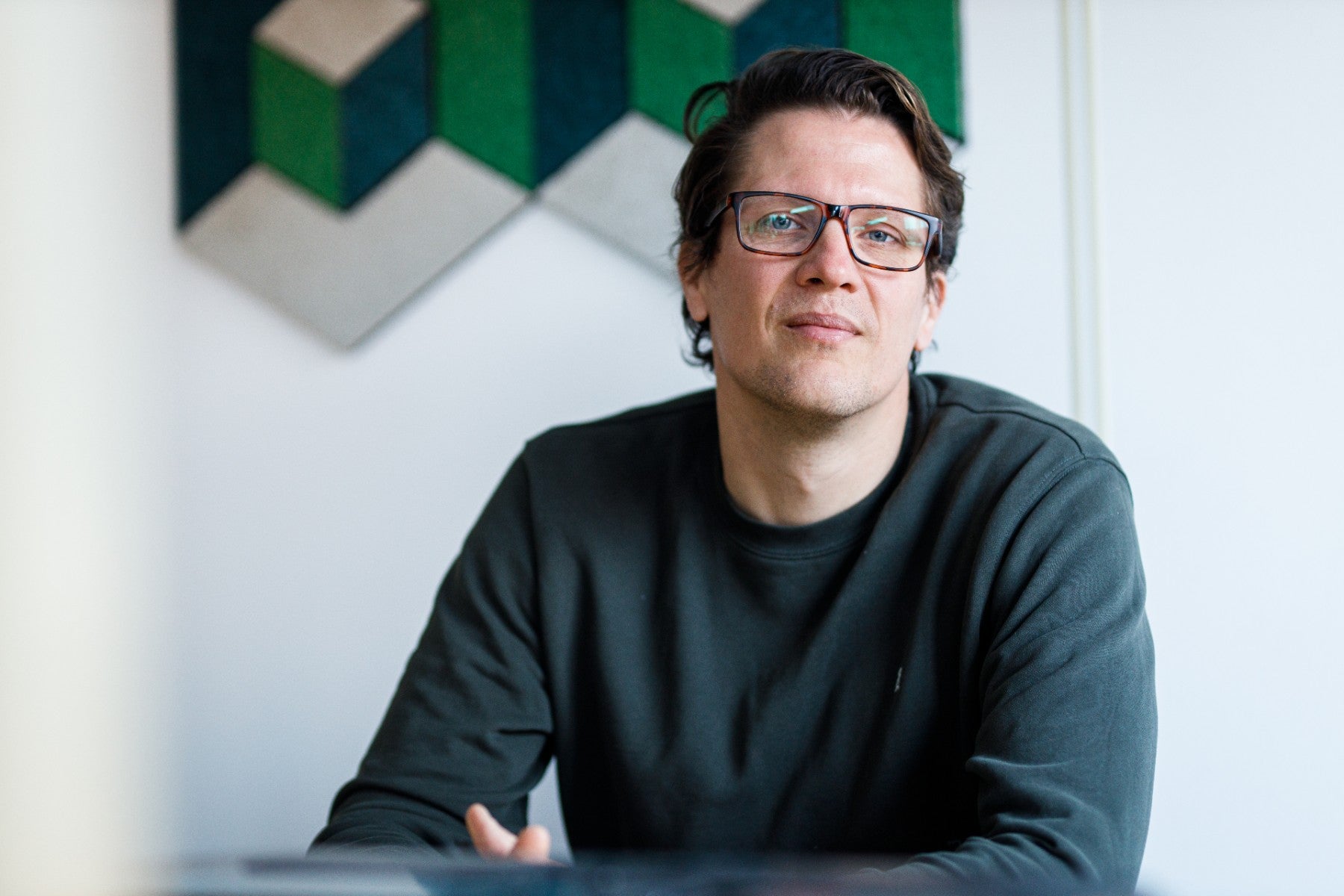Alumnus Olaf van der Veen uses a smart food waste monitor to fight against waste in the hospitality industry. „A medium-sized restaurant throws away 30 to 60 kilogrammes of food per day."
You founded the start-up Orbisk specifically to reduce food waste in the hospitality industry. How did you come up with that idea?
„I had some side jobs in the hospitality industry, and I noticed how much food the restaurants were throwing away. But it was seeing how much food gets tossed out at a hotel breakfast buffet that made me realise: something needs to change."
„You might think that most of the food that goes to waste is from the guests’ plates, but most of the waste is produced in the kitchen. I discovered that a medium-sized restaurant throws away 30 to 60 kilogrammes of food each day. Every kilo costs an average of 6 euros. That means an average-sized restaurant can save between 20,000 and 50,000 euros per year with our device.”
How does it work, exactly?
„The system consists of a rubbish bin, a scale and a camera with image recognition technology. Before you throw away food remains, you hold the plate in front of the camera. The system’s artificial intelligence then recognises which food is being discarded, and the scale measures how much it weighs. That gives the restaurant more control of their waste.”
Does that keep the waste containers empty?
„Sometimes food gets burnt while cooking, of course. We mainly help identify structural losses. For example, think of a company caterer who has to throw away a lot of a salad bar every Friday afternoon, because the staff would rather eat a fried snack instead. And on Monday the fried snacks go in the bin because the employees want something healthier after the weekend. Our system allows the company to adapt to that."

„Another of our clients - a business hotel - offered a dinner buffet at the weekend to save on the costs of the extra chef needed for an à la carte dinner. But we quickly noticed that they threw away so much food from the buffet that they could easily pay for an extra chef. And the guests appreciated the à la carte menu more than the buffet. So the hotel was happy, and the guests were happy.”
What problems did you encounter when you were creating the product?
„We noticed that the implementation is often different from the idea you had in your head. We benefitted a lot from the feedback from hospitality industry entrepreneurs, for example. Our initial idea of having them click twice on a tablet to enter the waste proved to be just too much work for them. Information like that requires us to adapt. Be prepared to kill your darlings. That can conflict with your ego at times. I don’t have a natural tendency to deal with that well, but I’m learning how, because the only thing that really counts is a usable product for your client.”
You studied Pharmaceutical Science at Vrije Universiteit Amsterdam. Can you draw any parallels to the work you do now?
„There aren’t many substantial similarities. I went in a completely different direction, although I still think there’s something magical about chemistry. It’s like playing with Lego, but at a scale you can’t see with the naked eye. But I felt that the applied work in a laboratory was too lonesome."
„Working with artificial intelligence has the same kind of magic. You train the model with data sets, but you don’t know exactly how the model makes decisions. It can make connections without explicitly learning how, just like a human brain. And that’s pretty magical.”
In closing: do you have any advice to help other start-up entrepreneurs avoid making the same mistakes?
„The biggest mistake is not daring to make mistakes. If you don’t make mistakes, you can’t grow. So make mistakes, and learn from them. Listen closely to customers, advisors and other people who’s opinion you respect. Share your idea. I was hesitant to do that at first. I was scared that someone would steal my idea, but that turned out to be unfounded. But keep in mind that listening isn’t the same thing as blindly accepting advice: listen to all of the advice that’s well-intentioned, whether you asked for it or not, and then form your own perspective of the truth.”








